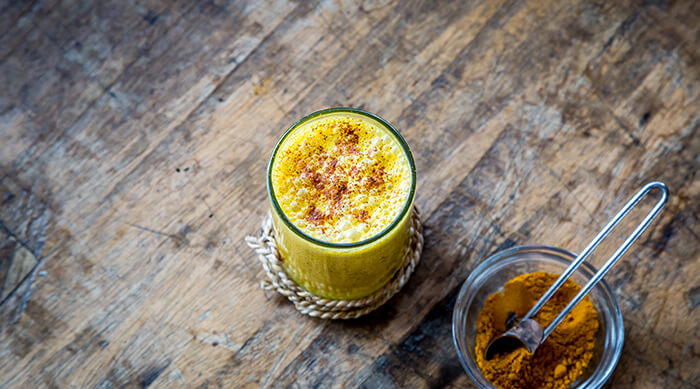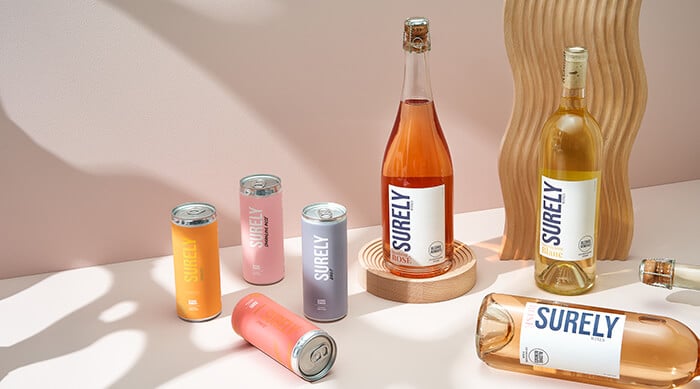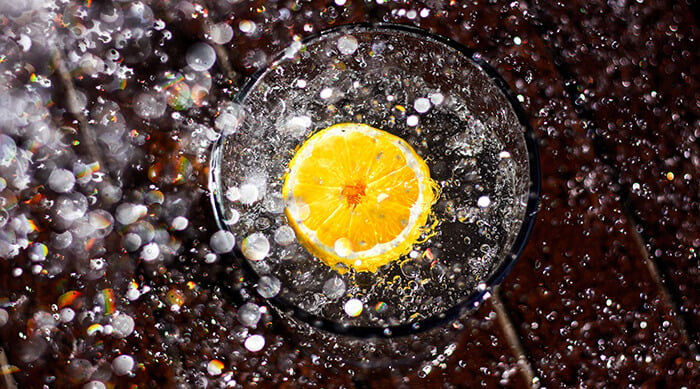It can be challenging to find beverages on store shelves that don’t claim a side of health benefits. A growing health and wellness industry means those drinks are not all created equally, and some are better for you than others.
What are wellness drinks? Wellness drinks are beverages that promise some kind of health benefit. Much like functional beverages, these are drinks that offer benefits like relaxation, keto macros, or an immune system boost, on top of necessary hydration.
Outside of water, the first thing you should reach for when you’re feeling parched, drinks that are good for wellness include kombucha, coconut water, and green tea. Why they’re good for you varies, but they all offer a little something extra for your health.
For the benefits of wine without alcohol, try our non-alcoholic pinot noir.
Table of Contents
Table of Contents
Kombucha
While there’s some conflicting information out there about all the claims associated with kombucha, the fizzy, gluten-free drink does boast loads of probiotics.
Most nutritionists agree that kombucha is an excellent option to support digestion, gut health, and a balanced microbiome.
All the rest depends on the type of kombucha you’re sipping. Some brands are higher in sugar, so read labels before taking a bottle home.
DIY kombucha is a tedious process, but it’s become a popular hobby for enthusiasts who want control over the finished product’s fermentation and flavors. We won’t get into all of that here, but this recipe from Brew Buch gives you an idea of the fun you can have with flavors.
Note: This recipe assumes your homemade kombucha has already gone through its first fermentation. We warned you that it’s a process!
Ingredients:
- ½ gallon kombucha from a first fermentation
- ½ cup grapefruit juice
- 2 tablespoons grated ginger
- 1-2 tablespoons honey
- 1 sprig rosemary or mint (optional)
Directions:
- Evenly distribute grapefruit juice, ginger, and honey into your fermentation bottles.
- Pour in kombucha, leaving some space at the top.
- Add your (optional) garnishes.
- Place in a dark area for 3-10 days until the fizz is where you like it.
- Chill before serving. Strain the ginger if you like.
Coconut Water
Hydrating coconut water is an excellent alternative to sports drinks and your favorite energy drink. The wellness beverage boasts healthy electrolytes that recharge your battery naturally with a good dose of your daily potassium, sodium, and magnesium.
Reach for varieties without added sugar to keep coconut water from resembling a soft drink.
If you want a fun alternative to sugary lemonades, try mixing it with fresh citrus for a vitamin C boost like this recipe from Rasa Malaysia. Sub the sugar for a natural sweetener in this one to play up the coconut’s sweetness.
Citrus fruits like lemon, limes, and grapefruit are a great way to kickstart collagen production, by the way. It’s a reason why vitamin C is so essential as you age.
Ingredients:
- 4 cups coconut water
- 5 tablespoons fresh lemon juice
- 3 calamansi limes, juiced (optional)
- 3 tablespoons natural sweetener, like agave nectar
- 2 lemons, sliced
- 2 cups ice
- Mint for garnish
Directions:
- Combine the coconut water, lemon and lime juice, and sweetener in a pitcher.
- Stir to mix well.
- Add the sliced lemons and ice into the pitcher.
- Pour and garnish with mint leaves.
Vinegar Drinks
Vinegar-based drinks are promising more than a puckered face. Apple cider vinegar can manage your blood sugar levels, aid in digestion as a detox drink, and give you an energy boost.
You don’t need to drink it straight up, either. Try this recipe from The Harvest Kitchen to make the sour taste a little more palatable. If it’s still too bitter, add a splash of sugar-free juice or sub the plain water for seltzer.
Note on juice: We do not include fruit juices here as there’s so much variety out there with options that look healthy from a distance. If you’re looking for a healthier juice, pomegranate, tart cherry, and cranberry are good options.
Just make sure you’re reading labels to avoid added sugars, and avoid store-bought smoothies. They’re best homemade so that you can better control the ingredients.
Ingredients:
- 2 cups water
- 2 teaspoons unfiltered organic apple cider vinegar
- 1-2 tablespoons lemon juice
- ¼ teaspoon ground turmeric
- 2-3 teaspoon honey
- Pinch of black pepper (optional)
- Cinnamon sticks (optional)
Directions:
- Add the ingredients to a mason jar and seal tightly.
- Shake well to combine.
- Sip throughout the day.
Kefir
Milk kefir is a fermented milk drink made from kefir grains. It’s rich in probiotics that support gut health and shows promise as an anti-inflammatory. You’ll find it in the dairy or yogurt aisle at your local grocery store.
There’s another version of kefir that may be harder to find: water kefir.
Water kefir is dairy-free but still offers the benefits of probiotics. If you’re patient, it’s relatively easy to make at home as long as you can get your hands on kefir grains.
Try this recipe from Nourished Kitchen for an initial fermentation. If you want flavored kefir, you’ll need to ferment your kefir a second time.
Ingredients:
- 4 cups cold water
- ¼ cup of a caloric sweetener (unrefined cane sugar, honey, and coconut sugar would all work)
- 2 tablespoons water kefir grains
- 1 dried fig
- ½ lime
Directions:
- Bring 1 cup of water to a boil.
- Stir in your sweetener until it dissolves
- Pour the sweetened water into a quart-sized mason jar.
- Pour the remaining 3 cups of cold water into the mason jar.
- Allow the mixture to cool to room temperature.
- Spoon the kefir grains into the water.
- Drop in the fig and lime.
- Let the mixture sit for 24-72 hours.
- Strain your mixture and serve.
Turmeric
Turmeric is a well-known anti-inflammatory, but research also shows it can improve your mood, relieve stress, and treat depression.
An easy way to get a dose of turmeric deliciously is golden milk, a hot drink popular in Indian culture that has grown in popularity worldwide. This 5-minute recipe from Minimalist Baker offers an easy way to brew a cup at home.
Ingredients:
- 1 ½ cups coconut milk
- 1 ½ cups almond/oat/milk of choice
- 1 ½ teaspoon ground turmeric
- ¼ teaspoon ground ginger
- 1 cinnamon stick
- 1 pinch ground pepper
- 1 tablespoon coconut oil (optional)
- Natural sweetener of choice, to taste
Directions:
- Add all ingredients to a saucepan.
- Whisk to combine.
- Warm over medium heat for about 4 minutes or until the liquids are hot to the touch.
- Turn off the heat and taste. Adjust flavor as needed for sweetness or spice.
- Serve immediately, leaving the cinnamon stick behind.
Adaptogens
Adaptogens are herbs and mushrooms that promise a dose of stress relief on top of added functions specific to the plants you’re ingesting.
Ashwagandha, for example, may reduce anxiety and the risk of developing certain cancers. Reishi mushrooms provide the body with an immunity boost and may have cancer-fighting properties. Ginseng fights fatigue and provides anti-aging effects.
You can find adaptogens in teas, supplements, and powder. Some companies and healthy drink brands have embraced adaptogens to bring CBD drinks to the mainstream.
Sparkling water brand Recess blends adaptogens like ginseng and L-theanine with hemp extract, adding flavors from fruits and botanicals. The promise of these elixirs is a lifted mood, improved well-being, and a decrease in stress and anxiety.
Do those stress-relieving drinks really work? Stress-relieving drinks may really work, but they’re best used in moderation alongside a healthy diet.
Larger doses may have side effects, so it’s always best to talk to your doctor about what you’re adding to your diet before you do so.
Do wellness drinks have side effects? Wellness drinks, as with any added food or beverage to a diet, can have side effects. Some of these drinks include caffeine. Ingesting too many prebiotics and probiotics can cause stomach cramping and nausea.
Even good things should be enjoyed in moderation.
Green Tea
Green tea is one of the best health beverages out there. It’s been linked to improved brain function, protective effects against cardiovascular conditions, even fat burning.
What is the best drink for weight loss? Green tea is one of the best drinks for weight loss, thanks to components in the tea that rev up your metabolism.
Matcha, essentially green tea in powder form, maybe even higher in antioxidants, but it also has more caffeine. Sip those lattes in moderation if you’re trying to monitor your caffeine intake.
Drinking plain green tea is always best, but if you’re looking to make the ancient beverage more exciting, try it spiced. This recipe from Taste of Home adds anti-inflammatory ginger root to green tea’s immune-boosting effects.
Ingredients:
- 4 green tea bags
- 2 cinnamon sticks
- ½ teaspoon minced fresh ginger root
- ½ teaspoon lemon zest
- 4 cardamom pods, crushed
- 2 tablespoons honey
- 4 cups boiling water
Directions:
- In a large bowl, combine tea, cinnamon sticks, ginger root, lemon zest, and cardamom.
- Add boiling water, steeping for 5-6 minutes.
- Strain, discarding tea bags and spices.
- Stir honey into tea and enjoy hot.
Non-Alcoholic Wine
Despite the positive benefits of resveratrol, an antioxidant compound found in red wines, drinking wine to excess doesn’t lead to good health outcomes.
While sipping a glass of wine in moderation is acceptable for most healthy adults, abstaining from alcohol is best if you’re looking for an overall wellness boost.
That doesn’t mean you have to give up wine completely! Here at Surely, we’ve come up with a way for you to keep wine while ditching the alcohol. The result is a low-calorie, alcohol-removed wine that’s better for you and can fit within your healthy lifestyle.
Sources
- Effect of kombucha intake on the gut microbiota and obesity-related comorbidities: A systematic review
- Rehydration after exercise with fresh young coconut water, carbohydrate-electrolyte beverage and plain water
- A systematic review and meta-analysis: Vinegar consumption on glycaemic control in adults with type 2 diabetes mellitus
- Modern perspectives on the health benefits of kefir in next generation sequencing era: Improvement of the host gut microbiota
- Curcumin, an active component of turmeric (Curcuma longa), and its effects on health
- An Overview on Ashwagandha: A Rasayana (Rejuvenator) of Ayurveda
- Ganoderma lucidum (Reishi mushroom) for cancer treatment
- Characteristics of Panax ginseng Cultivars in Korea and China
- Green Tea Catechins and Cardiovascular Health: An Update





![Healthy Drink Brands to Try Today [Tea, Soda Swaps & More]](https://dropinblog.net/34240221/files/featured/Healthy_Drink_Brands.jpg)
